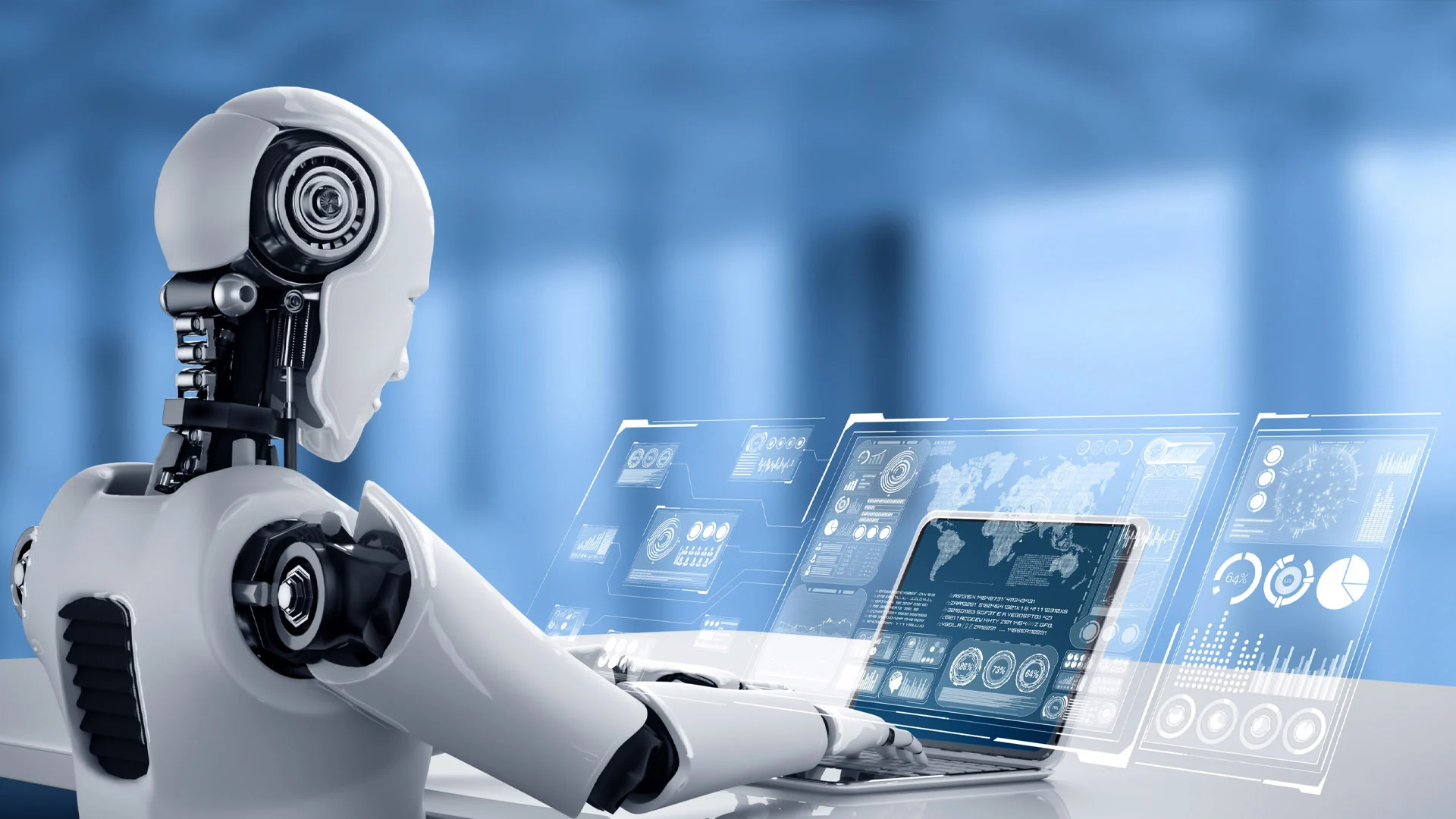The Future of Software Automation in the Workplace is an increasingly popular topic as businesses continue to embrace technological advancements. Automation, artificial intelligence, and machine learning are revolutionizing the way work is done, leading to increased efficiency and productivity. As companies look to streamline their processes and reduce human error, software automation is becoming an essential tool for the modern workplace. The integration of automation into daily tasks has the potential to transform the way businesses operate, allowing employees to focus on more strategic and creative endeavors. The future of work is undoubtedly intertwined with the future of software automation.
As the workplace continues to evolve, the integration of software automation is sparking curiosity and interest among professionals. The potential impact of automation on job roles and responsibilities, the ethical implications of relying on technology, and the overall future of work dynamics are all important aspects to consider. Businesses are also keen to understand how software automation can improve customer experiences and drive innovation. With the rise of remote work, the role of software automation in facilitating collaboration and communication is also a key area of interest. The future of software automation in the workplace is a complex and multi-faceted topic that encompasses a wide range of considerations and possibilities.
The Rise of Software Automation
Software automation has been rapidly gaining traction in the workplace, revolutionizing the way tasks are performed. With the advancements in artificial intelligence and machine learning, software automation has become increasingly sophisticated, enabling the automation of complex processes that were once thought to be impossible. From simple repetitive tasks to more complex decision-making processes, software automation has the potential to significantly improve efficiency and productivity in the workplace.
Furthermore, the rise of robotic process automation (RPA) has allowed for the integration of automation into existing systems and processes, without the need for extensive reengineering. This has made it easier for organizations to adopt automation, leading to widespread implementation across various industries. As a result, the demand for software automation skills has been on the rise, with professionals seeking to upskill in order to stay relevant in the evolving workplace.
The Impact on Jobs and Skills
While software automation offers numerous benefits in terms of efficiency and productivity, it has also raised concerns about its impact on jobs. As automation continues to replace repetitive and routine tasks, there is a growing fear of job displacement and the potential obsolescence of certain skills. However, it is important to note that automation also creates new opportunities and the demand for skills related to software automation, such as programming, data analysis, and process optimization, is on the rise.
Moreover, as routine tasks become automated, employees are able to focus on more strategic and creative aspects of their work. This shift in focus requires a different set of skills, such as critical thinking, problem-solving, and innovation, which are highly valued in the modern workplace. Therefore, while certain jobs may become obsolete, new roles and opportunities will emerge, requiring a different skill set that aligns with the capabilities of software automation.
The Role of Software Automation in Decision-Making
Software automation has evolved to the point where it can now assist in decision-making processes, leveraging data and analytics to provide valuable insights. Through the use of algorithms and predictive modeling, automation can analyze large volumes of data at a speed and accuracy that surpasses human capabilities. This has the potential to revolutionize decision-making processes, enabling organizations to make more informed and data-driven decisions.
Furthermore, automation can help in identifying patterns and trends that may not be immediately apparent to human analysts, leading to more effective decision-making. However, it is important to note that while automation can assist in decision-making, human judgment and oversight are still crucial. The role of automation is to support and augment human decision-making, rather than replace it entirely.
The Integration of AI and Automation
The integration of artificial intelligence (AI) and automation has further expanded the capabilities of software automation in the workplace. AI-powered automation systems are able to learn from experience, adapt to new inputs, and perform tasks that would normally require human intelligence. This has led to the development of cognitive automation, which can handle unstructured data and perform cognitive tasks, such as natural language processing and image recognition.
As a result, AI and automation are being used to automate more complex processes that were previously thought to be beyond the capabilities of machines. This has the potential to not only improve efficiency and productivity but also to drive innovation and create new opportunities for businesses. However, the integration of AI and automation also raises ethical and societal concerns, such as job displacement and the ethical use of AI, which need to be carefully addressed.
The Future of Work with Software Automation
Looking ahead, the future of work with software automation is likely to be characterized by a greater emphasis on collaboration between humans and machines. As automation continues to take over routine and repetitive tasks, humans will be able to focus on tasks that require emotional intelligence, creativity, and complex problem-solving skills. This shift in focus has the potential to create a more fulfilling and meaningful work experience for employees.
Furthermore, the integration of automation and AI is expected to lead to the creation of new job roles and industries, as well as the transformation of existing ones. The ability to leverage data and analytics through automation is likely to become a key differentiator for businesses, leading to a greater demand for skills related to data analysis and process optimization. As a result, the future workplace is expected to be characterized by a greater reliance on software automation and AI, leading to a more efficient, productive, and innovative work environment.
Challenges and Considerations in Software Automation
Despite the numerous benefits of software automation, there are also challenges and considerations that need to be addressed. One of the primary challenges is the potential for job displacement and the need to reskill and upskill the workforce to adapt to the changing demands of the workplace. Additionally, there are concerns related to the ethical and responsible use of automation, particularly in areas such as decision-making and customer interactions.
Furthermore, the integration of automation into existing systems and processes can be complex and may require significant investment in terms of time and resources. Organizations will need to carefully evaluate the costs and benefits of automation and ensure that it aligns with their overall business strategy. Additionally, cybersecurity and data privacy concerns need to be carefully addressed, particularly as automation systems handle sensitive data and perform critical tasks.
The Importance of Ethical Considerations in Automation
As software automation continues to advance, it is crucial to consider the ethical implications of its use in the workplace. Automation has the potential to impact job security, privacy, and the overall well-being of employees. It is important for organizations to prioritize ethical considerations and ensure that the implementation of automation is done in a responsible and transparent manner.
Furthermore, ethical considerations also extend to the use of automation in decision-making processes, particularly in areas such as finance, healthcare, and legal services. The potential for bias and unintended consequences in automated decision-making processes needs to be carefully addressed through the development of ethical frameworks and guidelines. Ultimately, the responsible and ethical use of automation is essential in ensuring that its benefits are maximized while minimizing potential risks and negative impacts.
The Evolution of Software Automation in Different Industries
Software automation is not limited to a specific industry and has the potential to revolutionize processes across various sectors. In manufacturing, automation has already transformed production processes, leading to greater efficiency and cost savings. In the financial services industry, automation is being used to streamline back-office operations and improve customer service through chatbots and automated financial advisors.
Moreover, in healthcare, automation is being leveraged to streamline administrative tasks and improve patient care through the use of AI-powered diagnostics and personalized treatment plans. The potential for software automation is vast and extends to industries such as retail, transportation, and logistics, where it has the potential to improve supply chain management and customer experiences. As a result, the evolution of software automation is likely to have a profound impact on diverse industries, leading to greater efficiency, innovation, and competitiveness.
Summary of The Future of Software Automation in the Workplace
| Topic | Description |
|---|---|
| Impact on Jobs | Software automation is expected to change the nature of work, leading to the displacement of some jobs while creating new ones. |
| Increased Efficiency | Automation can streamline business processes, reduce errors, and increase productivity in the workplace. |
| Skills Required | Employees will need to acquire new skills to work alongside automated systems, such as data analysis and problem-solving. |
| Ethical Considerations | As automation becomes more prevalent, ethical questions arise regarding privacy, job security, and the impact on society. |
The future of software automation in the workplace is poised to bring about significant changes, impacting jobs, efficiency, required skills, and ethical considerations. As automation continues to evolve, it will be crucial for organizations and employees to adapt to these changes and address the challenges and opportunities that arise.



